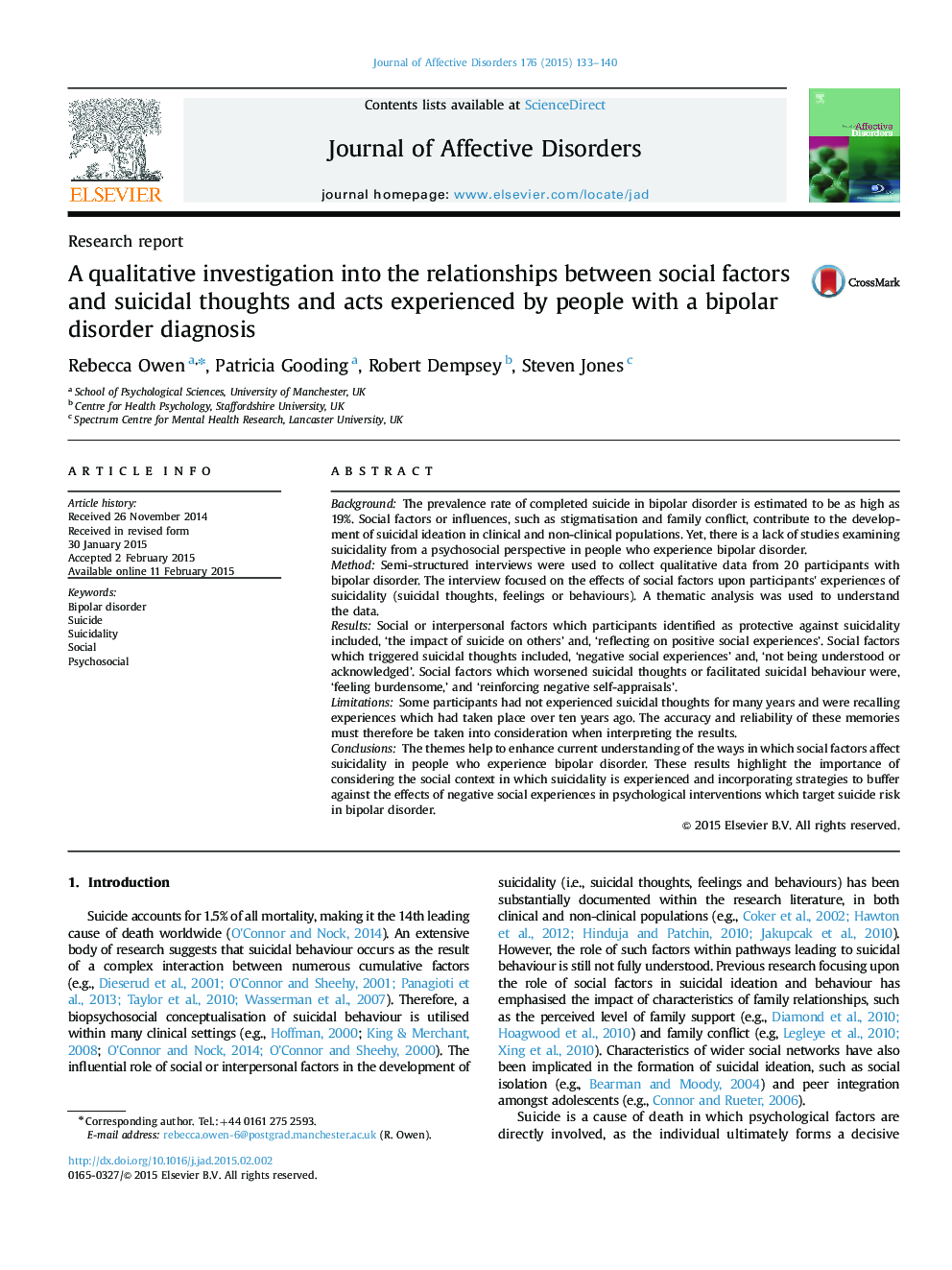| کد مقاله | کد نشریه | سال انتشار | مقاله انگلیسی | نسخه تمام متن |
|---|---|---|---|---|
| 4185959 | 1608149 | 2015 | 8 صفحه PDF | دانلود رایگان |
BackgroundThe prevalence rate of completed suicide in bipolar disorder is estimated to be as high as 19%. Social factors or influences, such as stigmatisation and family conflict, contribute to the development of suicidal ideation in clinical and non-clinical populations. Yet, there is a lack of studies examining suicidality from a psychosocial perspective in people who experience bipolar disorder.MethodSemi-structured interviews were used to collect qualitative data from 20 participants with bipolar disorder. The interview focused on the effects of social factors upon participants׳ experiences of suicidality (suicidal thoughts, feelings or behaviours). A thematic analysis was used to understand the data.ResultsSocial or interpersonal factors which participants identified as protective against suicidality included, ‘the impact of suicide on others’ and, ‘reflecting on positive social experiences’. Social factors which triggered suicidal thoughts included, ‘negative social experiences’ and, ‘not being understood or acknowledged’. Social factors which worsened suicidal thoughts or facilitated suicidal behaviour were, ‘feeling burdensome,’ and ‘reinforcing negative self-appraisals’.LimitationsSome participants had not experienced suicidal thoughts for many years and were recalling experiences which had taken place over ten years ago. The accuracy and reliability of these memories must therefore be taken into consideration when interpreting the results.ConclusionsThe themes help to enhance current understanding of the ways in which social factors affect suicidality in people who experience bipolar disorder. These results highlight the importance of considering the social context in which suicidality is experienced and incorporating strategies to buffer against the effects of negative social experiences in psychological interventions which target suicide risk in bipolar disorder.
Journal: Journal of Affective Disorders - Volume 176, 1 May 2015, Pages 133–140
